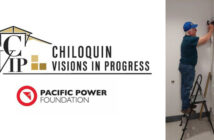My how time flies! It seems as though our move to Central Oregon was “yesterday”… taking on my first employment following graduate school. But it wasn’t yesterday, it was June 1970.
There were a number of unknowns associated with our decision to locate to Bend. The small-town aspect was not one of them, since my wife and I both grew up in McMinnville. But Central Oregon was climatically and environmentally different for us… and we did not ski (very well), hunt, fish or camp. What are the people like? What’s the community spirit? Is this a longer-term engagement or a stop along the way?
At the time we arrived in Bend, the community was in the early stages of diversification from a majorly lumber-based economy. An interest in a greater emphasis on tourism and recreation was afoot. This focus created a need for job skills which piqued the interest of young families looking for new challenges and the opportunity to participate in the growth of a community open to a reimagination. Though it was widely shared at the time that one needed to live in Central Oregon 20 years before being considered to be local, the newbies were warmly welcomed and appreciated for the contributions of their varied backgrounds. Recent experience suggests that fresh transplants consider themselves “locals” once they’ve changed their license plates.
Here we are now in 2024, and my goodness, a great deal has changed in the last 50-plus years. As one might expect, some good… and some not-so-good. For some long-term Bendites, the changes have drained the city of what they held most dear, and they have chosen to find their vision of “Bendness” elsewhere. Many of us who have lived in this community for decades still work here, continue to support efforts to improve livability, and continue to enjoy at least some of the amenities Bend has provided us over the years. However, with change has come some disappointment.
Growth and the changes associated with it are inevitable when a community offers a lifestyle and amenities that appeal to a broad spectrum of people. Bend needs housing, facilities and infrastructure to respond to the growth and attempt to maintain community expectations. However, it is disheartening to see so much new development presenting an “anywhere USA” vibe, rather than being designed for end results that creatively address the needs, but which also include a creative nod to the history and regional character of Central Oregon. Unfortunately, we have most recently seen too many decorated boxes that fill their sites, shade their neighbors, block valued view corridors, and exhibit no consideration of the adjacent existing buildings, contextual fabric, or neighborhood character. My “ideal” would be future development that realizes a respectable return for the developer, results in forward-thinking design, in some way conveys a sense of its regional context, respects that which has gone before… and avoids sucking the joy out of our Special Place!
As with houselessness and the affordable housing drought, there are many facets to the issue of conscientious development that reinforces the best qualities of the community rather than diluting or obscuring them. Regrettably, there’s very little can be done to change the mindset of developers intent on seizing the opportunity to maximize return without concern for the host community, but architects and designers can play a role in advocating to their clients the value of more thoughtful project designs that also convey and keep alive at least some sense of place. One means of both preserving and improving the quality and nature of our communities is to work with local city and county governments to expand and amplify design and development standards which focus in particular on development that encourages progressive design while enhancing the character and settings that we who live in Central Oregon hold dear.
nealhuston.com • ngh@nealhuston.com
The above article was prepared by the author in his/her own personal capacity. The opinions expressed in the article are the author’s own and do not necessarily reflect the views of Cascade Business News or of Cascade Publications Inc.





